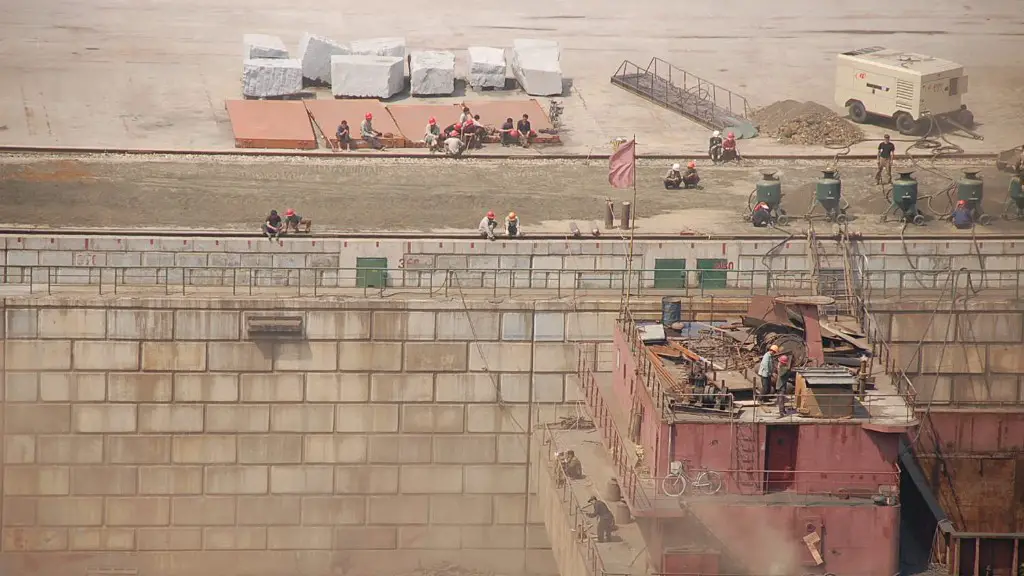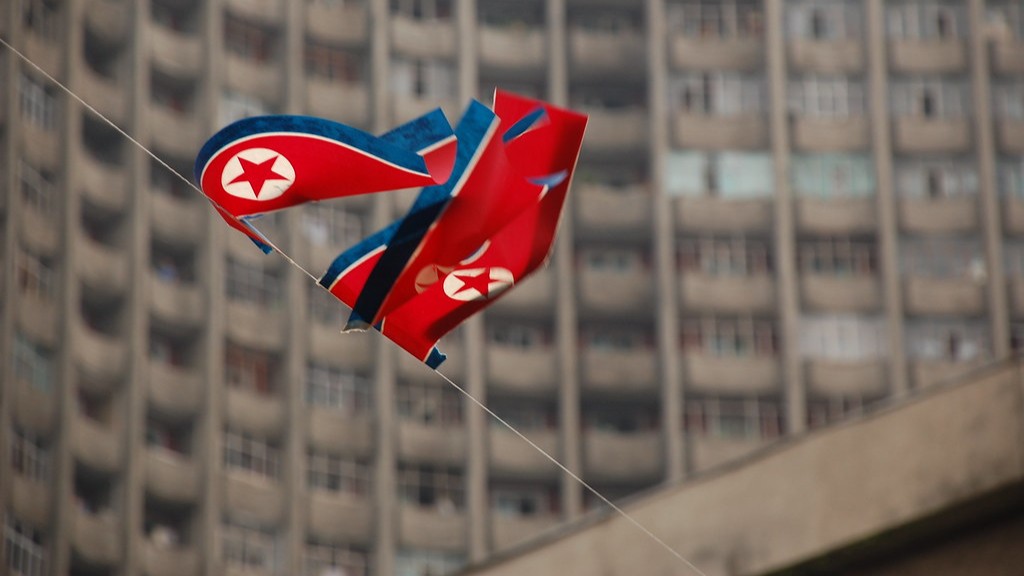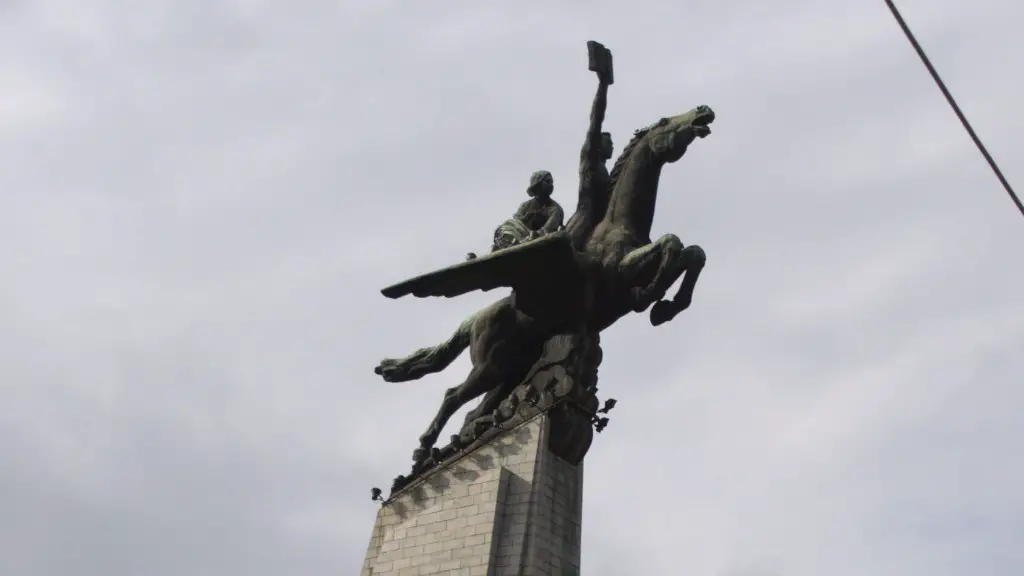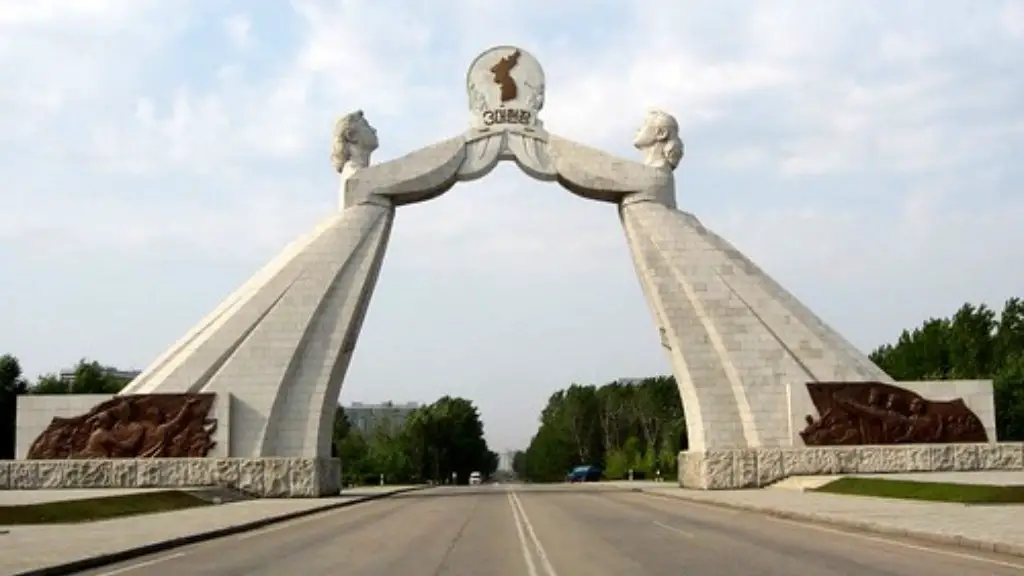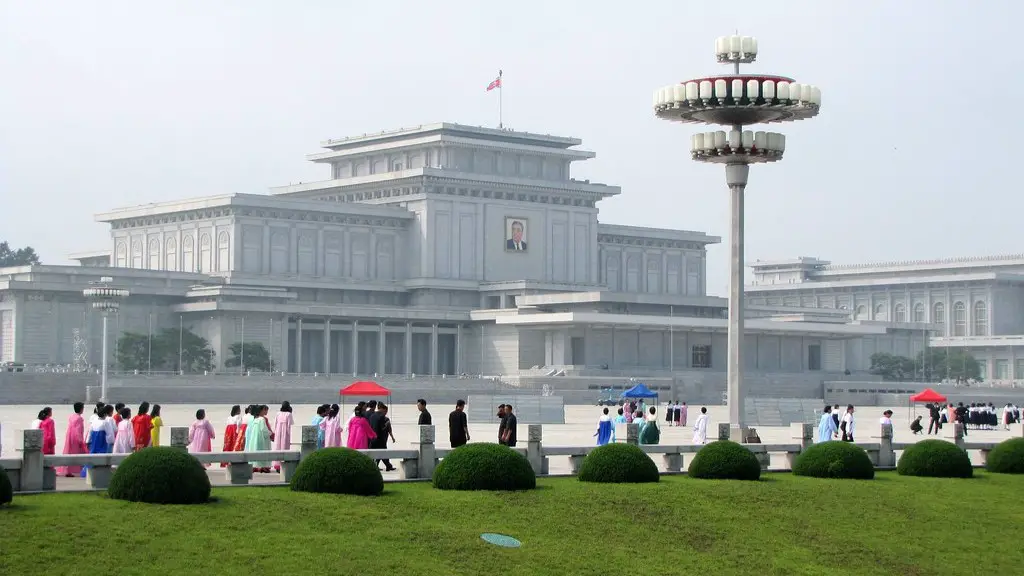The escalating tension between North Korea and other nations has brewed concern and speculation around the world. North Korea has continually asserted that they will not be disarmed or deterred from military action if provoked. This has caused some nations to seriously consider their strategies for war and ask the chilling query, “What are the chances of war with North Korea?” This topic has generated considerable discussion among political movers and shakers and the daily conversations of ordinary citizens alike.
The possibility of a war with North Korea clearly has many experts worried. In a statement to the public, US President Trump said that “the United States has great strength and patience, but if it is forced to defend itself or its allies, we will have no choice but to totally destroy North Korea.” He also added that although he viewed the matter of war and peace with North Korea as a first priority, the United States was prepared and capable of responding to all necessary measures. This indicates a willingness to enter into a war if relations continue to deteriorate.
On the other hand, the nations of China and Russia are attempting to discourage North Korea from taking aggressive action. China has encouraged North Korea to comply with international sanctions, while at the same time maintaining close economic ties with them. Russia has also tried to mediate on behalf of North Korea, attempting to deescalate tensions. These actions are indicative of a preference for peace and the deescalation of military action.
The public too has been closely following the conflict, though it is difficult to determine what the everyday citizens think of the situation. One survey of North Koreans found that most respondents were unaware of any outside news from the world and had only a superficial knowledge of the international events taking place around them. This suggests that the public is unable to form meaningful opinions on the matter of war and peace.
The current political climate is ripe for conflict, with North Korea’s nuclear ambitions and the United States’ pursuit of military confrontation. While it’s difficult to know what the future holds, it’s clear that war is a very real possibility. It may be impossible to predict the probability of a war, but it’s certain that the situation should not be taken lightly.
North Korea’s Weapons Capabilities
The capabilities of North Korea’s nuclear and missile programs are unclear, and experts believe that North Korea is capable of producing a nuclear weapon. Some reports estimate that North Korea may already have between 20 and 60 nuclear weapons, although this is difficult to confirm.
North Korea has tested its most powerful intercontinental ballistic missiles twice in 2017, potentially capable of reaching the US mainland. They have also tested submarine-launched ballistic missiles, which can be used to bypass conventional missile defense systems.
The most recent test was of a hydrogen bomb, which is widely believed to be the most powerful nuclear weapon ever tested. This test demonstrates that North Korea is continuing to develop ways to expand their nuclear capabilities, and demonstrates the increasing sophistication of their weapons.
North Korea’s military capabilities are difficult to assess accurately. They do not participate in military exercises or maneuvers and keep their military to themselves. However, it is widely believed that North Korea has the capability to defend itself against any external attack, especially with their growing nuclear capabilities.
North Korea’s Rationale For WWIII
North Korea has declared that it has the right to defend itself against perceived threats, and is ready and willing to do so with military force if necessary. North Korean leaders cite the Korean War and the US-led coalition’s “hostile policies” as the justification for their aggressive stance.
They also point to the US’s repeated military and economic interventions in the Middle East and its deployment of troops to the Korean Peninsula as justification for their own robust military presence.
This narrative has been pushed for years and is believed to be the basis of North Korea’s foreign policy. They have clearly defined the US as an enemy and have put in place measures to protect themselves from US aggression.
This hostile environment has also driven North Korea to take more extreme measures to protect itself from the perceived threat of US aggression, including the development of its own nuclear weapons capabilities.
The North Korean government is also worried that their regime could be overthrown and that their way of life could be threatened by hostile forces. This has caused them to take aggressive steps to protect themselves and deter any potential action against their government.
Missile Defense Systems
The US has deployed a number of missile defense systems in the region to help protect its allies and itself from a potential attack from North Korea. These systems are intended to intercept and destroy incoming ballistic missiles, and are deployed in South Korea, Japan, and other locations throughout the region.
The US has also deployed nuclear-capable ships and aircraft to the region to support these missile defense systems. These ships and aircraft are also capable of retaliating should North Korea initiate an attack.
The US has also pressured China and Russia to impose stricter sanctions on North Korea. They have laid out a long list of demands that must be met before the US will consider lifting sanctions or engaging in talks with North Korea.
The US has consistently highlighted the need for North Korea to denuclearize, and has stated that it will not accept anything less than the complete, verifiable, and irreversible dismantlement of North Korea’s nuclear programs. The US and its allies have made it clear that any aggressive action from North Korea will be met with a swift and overwhelming response.
The Role of Diplomacy
Diplomacy is an important tool in resolving disagreements between nations and seeking peace between warring parties. The US has made numerous attempts to engage with North Korea in diplomatic talks, though each time North Korea has refused to cooperate.
The US has expressed a willingness to accept some of North Korea’s demands in exchange for denuclearization, and has even proposed a path to peace that may lead to normalized relations between the two nations. However, North Korea has thus far refused to participate in any meaningful talks.
The international community has consistently argued that the best way to achieve peace is through dialogue, but North Korea has so far refused to change its stance or enter into meaningful negotiations.
International observers have also expressed their concern about the increasing tension between North Korea and other nations, especially given the fact that North Korea has made it clear that it does not view any of its rivals favorably and is willing to use military force should its demands not be met.
The Outcome Of War
The possibility of war always carries with it the risks of destruction and devastation. No one really knows what form a war with North Korea would take, or what the outcome of such a conflict would be.
Many experts agree that the use of a nuclear weapon by either side would be disastrous, and could have devastating consequences for the world at large. Such a scenario would involve a great deal of suffering, death, and destruction. Despite these risks, a war may still take place if North Korea is threatened or provoked.
It is difficult to imagine the consequences of a potential war with North Korea, but it’s certain that the entire world would be affected by such an event. It is therefore essential that diplomatic efforts continue and that the world’s nations work together to prevent a war and find a peaceful resolution.
North Korean People and Humanitarian Aid
The North Korean people are facing many difficulties due to the repression of their government and the sanctions that have been imposed. The people of North Korea are suffering from food insecurity and malnutrition, lack of basic healthcare, and other human rights violations.
The international community has taken steps to provide humanitarian aid and to address these issues, though the progress has been slow. International organisations have expressed concern about the situation in North Korea, and have called for greater access and assistance.
International aid provides much-needed assistance to the people of North Korea, and can help to promote stability by reducing the risk of unrest and conflict. It is essential that this aid continues and is not used as a tool to further escalate tensions and push towards military confrontation.
International aid has the potential to reduce the suffering of North Korean citizens and improve the human rights situation in North Korea. However, it is essential that this aid is not used as a tool to achieve political goals and is instead used to help those in need.
Conclusion
The chances of war with North Korea are difficult to predict, but there is certainly risk that the situation could deteriorate and lead to conflict. The US has consistently highlighted the need for North Korea to denuclearize, and has stated that it will not accept anything less than the complete, verifiable, and irreversible dismantlement of North Korea’s nuclear programs.
The international community has consistently argued that the best way to achieve peace is through dialogue, and the US has expressed a willingness to accept some of North Korea’s demands in exchange for denuclearization. However, North Korea has so far refused to participate in any meaningful talks. The current political climate is ripe for conflict, and the possibility of war is a very real possibility.
